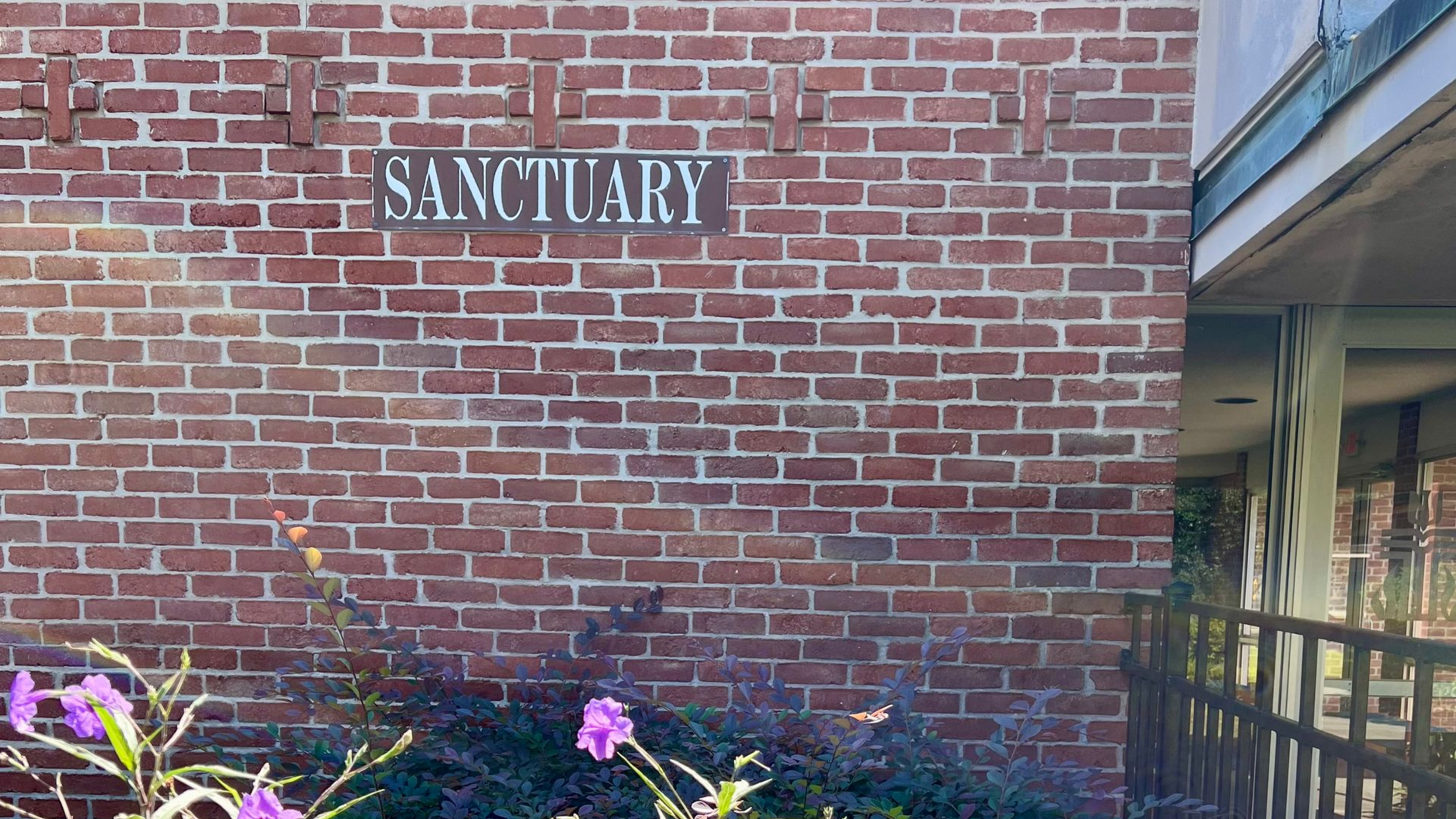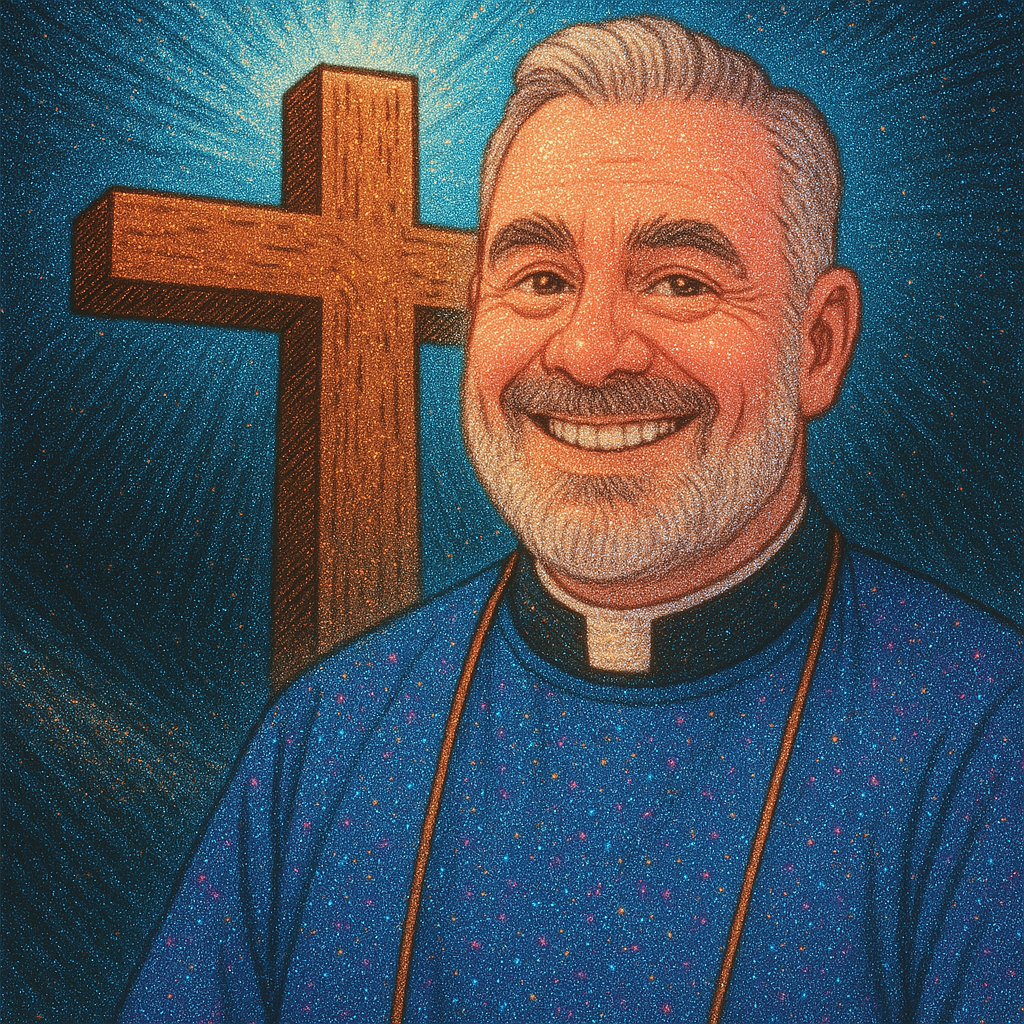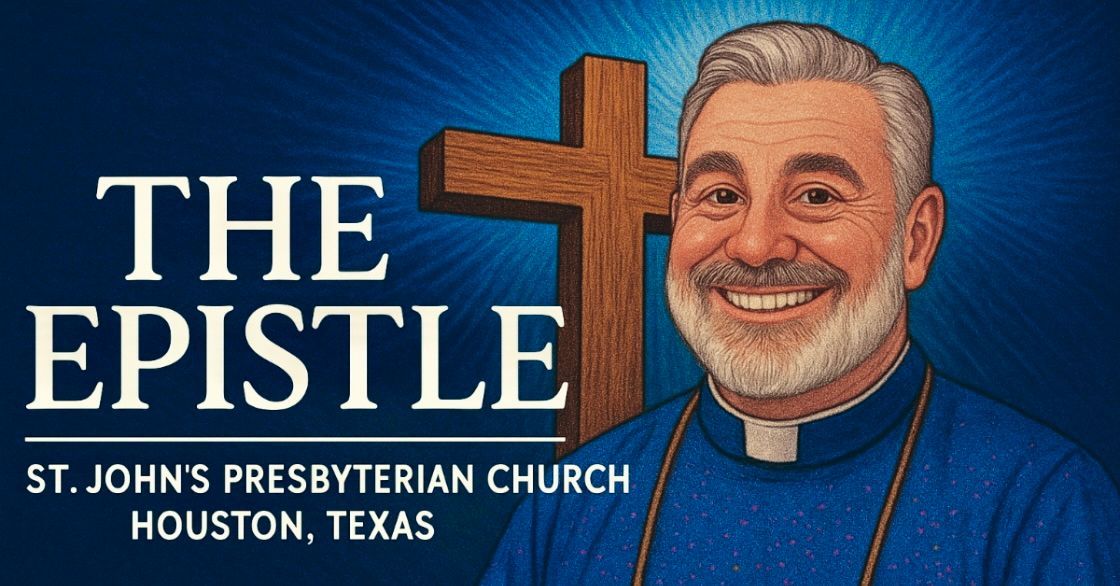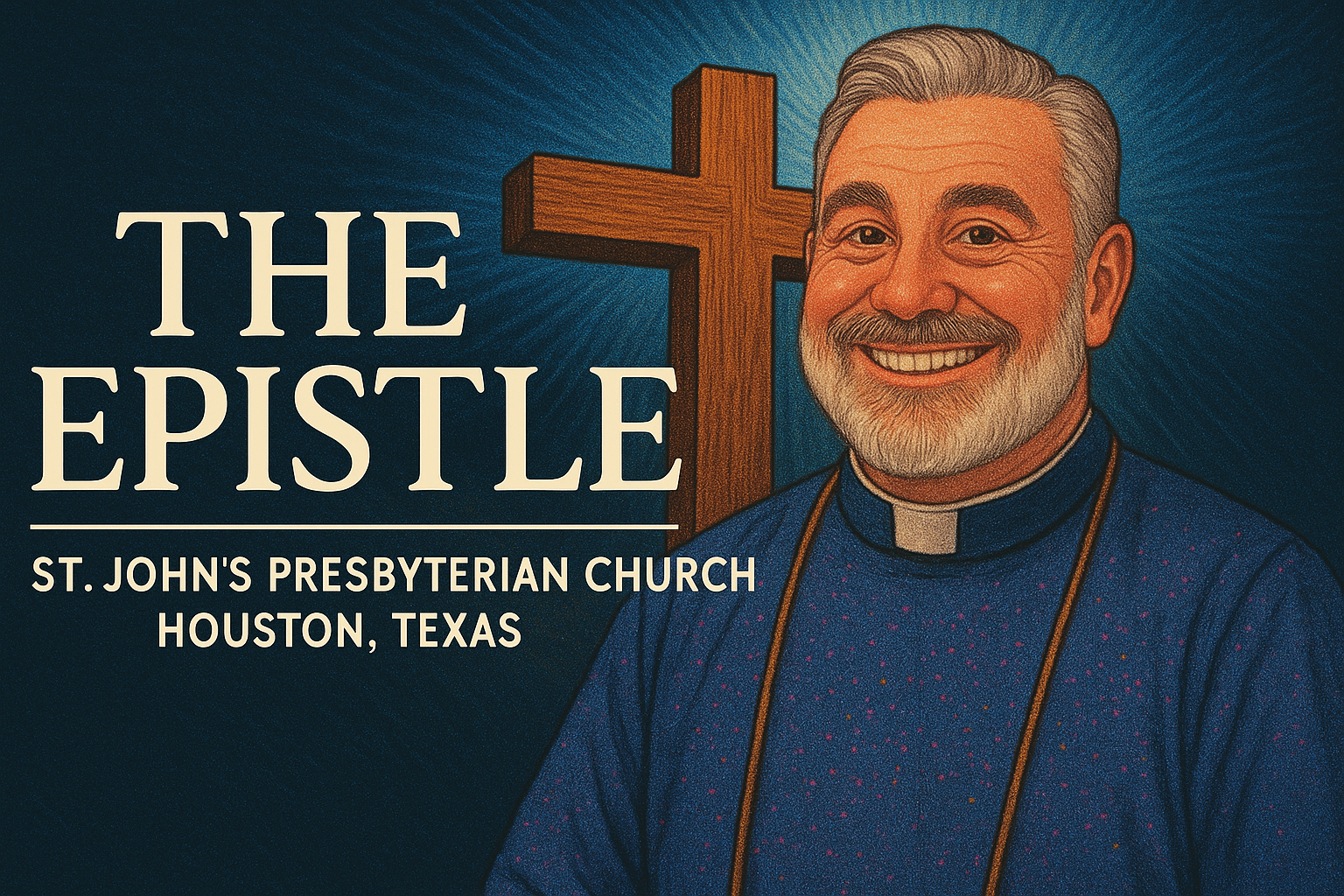Funeral Services Near Me:
How St. John's Presbyterian Supports Families
When someone you love dies, the last thing you want to think about is logistics. Yet there you are, sitting in a funeral home or standing in your kitchen at 2 AM, trying to figure out where to hold a service for someone who maybe attended church occasionally, or used to go years ago, or never went at all.
And you're searching "funeral services near me" because you need a sacred space, a pastor who won't pretend to have known your father when they never met, and a community that won't make this harder than it already is.
Let me tell you what we've learned about walking with families through death at St. John's Presbyterian Church in Houston. This isn't a sales pitch. It's what I wish someone had told me before I conducted my first funeral service as a young pastor, thinking I knew what grief needed.
I didn't. But the families taught me.
What Most People Don't Know About Church Funeral Services
Here's the truth nobody mentions when you're frantically searching for funeral services in Houston: most churches will host a service for community members, even if the deceased wasn't an active member. You don't need to have perfect attendance or a spotless giving record. You just need to call.
At St. John's, we've held services for people who hadn't walked through our doors in twenty years. We've celebrated the lives of parents whose children grew up here but moved away decades ago. We've offered our sanctuary to families who found us through that exact search you just did: "funeral services near me."
Why? Because death isn't a membership privilege. It's a human reality that deserves sacred response.
But not all churches approach this the same way, and understanding the differences might help you make decisions during an already overwhelming time.
The Small Church Advantage When Death Comes
I've served in larger congregations and smaller ones. At St. John's, we're definitely in the smaller category. On Sunday mornings, we might have 80 people in worship and about that many watching online. Yes, our services are livestreamed on our website each Sunday. Our building is newly remodeled and upgraded. We don't have a coffee bar or a massive staff.
But when death visits one of our families, something happens that I've rarely seen in larger settings.
The congregation mobilizes.
Not because someone assigns tasks or creates spreadsheets (though our Caring & Fellowship Committee does coordinate beautifully). It happens because in a church this size, we actually know each other. When Mary's husband died last spring, our members didn't need to be told what to do. Within hours, someone was organizing meals. Someone else was calling family members who lived out of state. Another person was quietly arranging flowers.
The day of the service, our kitchen was full of people who had known this family for years, preparing food for the reception. Not catering staff. Just people who loved them.
This is what "funeral support" actually looks like, stripped of corporate language and marketing copy. It's Jim bringing his truck to help move chairs. It's Barbara knowing exactly which hymns the deceased loved because she sat next to her in choir for fifteen years. It's having a pastor who can tell real stories about your loved one because he actually knew them, shared meals with them, prayed with them.
You can't manufacture this in a church of 2,000 people. You can organize it, sure. You can create systems and committees and response teams. But there's something different about a community small enough that grief ripples through everyone, where the loss touches people who actually remember.
When the Deceased Wasn't a Member: What Really Happens
This is the question I get most often from families calling about funeral services: "Is it okay that Dad wasn't really involved in church?"
Always yes.
Some of the most meaningful services I've conducted have been for people on the edges of church life. The man who came to our community garden every week but never attended worship. The woman whose daughter sang in our choir but who herself struggled with faith after losing a child years ago. The neighbor who used our parking lot for his morning walks and always waved but never came inside.
These services require more preparation, actually. I spend extra time with families, listening to stories, learning who this person was beyond religious categories. What made them laugh? What did they care about? What would they want said, or not said, at their funeral?
And here's what I tell families who worry their loved one wasn't "religious enough" for a church service: Jesus spent most of his time with people on the margins of religious life. If we're going to follow him, we probably should too.
At St. John's, we don't audit someone's spiritual résumé before offering our space and our care. We trust that if you're seeking a sacred space to mark this death, you have good reasons. Our role is to provide that space with dignity and authenticity, not to judge whether the deceased earned it.
What a Presbyterian Funeral Service Actually Involves
If you didn't grow up Presbyterian, or if you've been away from church for a while, you might wonder what happens during a Presbyterian funeral service. Let me walk you through the typical structure, though we adapt based on family needs and circumstances.
The Order of Service
Presbyterian funerals follow what we call "A Service of Witness to the Resurrection." That title reveals our theology: we're not just mourning a death, we're testifying to our hope in resurrection. This doesn't mean we skip the grief or pretend death isn't terrible. It means we hold grief and hope together, which is harder and more honest than either alone.
The service usually includes Scripture readings that speak to both loss and hope. Psalms of lament sit next to promises of resurrection. We sing hymns, sometimes the ones your loved one sang for decades, sometimes ones chosen by the family. We pray together, naming the pain and the gratitude, the loss and the memories.
I give a brief message, usually reflecting on Scripture in light of this particular life. This isn't a eulogy where I tell you how perfect the deceased was (nobody's perfect, and pretending otherwise dishonors their actual humanity). Instead, I try to connect their real life to God's real grace, acknowledging both struggles and gifts.
Family members often speak, sharing memories and stories. This can be healing or hard or both. We don't force it, but we create space for it if desired.
The service typically lasts 45 minutes to an hour. Long enough to be meaningful, short enough that elderly aunts and young children don't suffer too much. Then we usually have a reception in our fellowship hall, where the real ministry often happens: people eating, talking, crying, laughing, remembering.
The Flexibility Factor
Here's where smaller churches shine: flexibility. If you need to adjust the service because Uncle Robert is flying in from California and can't arrive until 2 PM, we adjust. If your mother loved folk music instead of traditional hymns, we help you find a guitarist. If your famil
We're not running multiple services that day with tight turnarounds. We're not locked into rigid schedules that can't bend. Your family's needs shape the service, not our operational constraints.
The Role of Our Caring & Fellowship Committee
At St. John's, we have a committee specifically dedicated to caring for members during life's hard moments. The Caring & Fellowship Committee visits homebound members, supports those in the hospital, and coordinates care when families face crisis.
When death occurs, this committee becomes crucial. They help organize the reception, coordinate meals for the family in the days following the service, and maintain contact in the months after, when grief deepens and most people have returned to their normal lives.
This isn't a formal bereavement program with scheduled check-ins. It's more organic than that, more personal. Someone remembers that this is the first Thanksgiving without Mom and brings a pie. Someone else notices Dad sitting alone at church and invites him to lunch. Small acts of sustained attention that say: we haven't forgotten.
The committee also maintains contact with inactive members, which means when someone dies who attended years ago, we often already have relationships with the family. We're not strangers showing up to perform a service. We're part of an extended community that never quite lost touch.
The Cost Question Nobody Wants to Ask
Let's address this directly because it matters when you're planning a funeral: What does this cost?
At St. John's, we don't charge our members or their families for use of the sanctuary for the service or McPhail Hall for the reception. The buildings are simply available. We also have a Memorial Service Meal and hospitality ministry that directs the reception after the service. It's part of what membership means, one of the ways we care for each other from birth to death.
For non-members or community families, we ask for a donation to the church that helps cover costs like building use, cleaning, sound system operation, and pastor and staff’s time. There is a musicians fee and the pastor fee is up to you. We've never turned away a family because they couldn't afford our suggested donation.
Some families choose to make a memorial gift to the church or to one of our mission partners like Braes Interfaith Ministries, where we serve hundreds of food-insecure neighbors each month. Others arrange for flowers or make donations to causes their loved one cared about. All of this is voluntary.
Compare this to funeral home chapel fees, which in Houston can run $500 to $1,500 or more. Church spaces aren't free to maintain, but we're not in the funeral business. We're in the community business, and supporting families through death is part of that calling.
What Happens After the Service: The Forgotten Part
Here's what most articles about funeral services won't tell you: the hard part isn't the day of the service. That day, you're running on adrenaline, surrounded by people, held up by structure and ritual.
The hard part is three weeks later, when everyone has gone home, when you're sorting through your father's clothes, when you're eating dinner alone for the first time in 40 years.
At St. John's, we know this. So we don't disappear after the reception ends.
Our pastor stays in touch with grieving families for months, sometimes years. Not with formal appointments or therapy sessions (I'm a pastor, not a counselor), but with occasional calls, notes on birthdays and hard anniversaries, invitations to church events that might help you reconnect with community when you're ready.
Our Caring and Fellowship Committee continues providing meals if needed, especially for elderly widows or widowers who struggle to cook for one. We invite grieving members to our monthly Keenagers lunches, where older adults gather for food and fellowship. We notice when you're absent from worship and reach out, not with guilt but with care.
We also offer resources for grief support groups in Houston and can connect families with Christian counselors if professional help is needed. Small churches don't have every resource in-house, but we know our community and can guide you to good support.
Why Location Matters When You're Searching "Funeral Services Near Me"
You're searching for "funeral services near me" because proximity matters when you're grieving. You don't want to drive across Houston in traffic while planning a funeral. You want something close, accessible, familiar maybe.
St. John's sits at 5020 West Bellfort Avenue, in the Westbury area of southwest Houston. We're easy to reach from Bellaire, Meyerland, Westbury, and surrounding neighborhoods. Our building dates to the 1950s, which means we have the space and parking that older church buildings offer, without the intimidating scale of newer megachurch campuses. We also have a gorgeously remodeled sanctuary we renovated after Harvey. The sanctuary has near perfect acoustics according to the professional musicians we host in our annual Lenten Arts Series.
For out-of-town family flying into Houston, we're closer to Hobby Airport although Bush Intercontinental is still within driving range. The neighborhood is safe, the parking is ample, and the building is accessible for those with mobility challenges.
But proximity isn't just about geography. It's about emotional accessibility too. When you walk into St. John's, you won't face a massive lobby with coffee stands and bookstores. You'll walk into a church that feels like a church, with people who greet you by name (or learn it quickly), with a sanctuary designed for worship, not entertainment.
For some families, especially those from older generations or those who've felt lost in contemporary church culture, this matters deeply. You want a funeral service that feels sacred without feeling sterile, personal without being casual, hopeful without denying the pain.
When You Need to Plan Ahead: Pre-Funeral Conversations
Nobody wants to think about their own funeral, but I've learned that the families who have the easiest time planning services are the ones who had these conversations beforehand.
If you're reading this not because someone just died, but because you're thinking ahead (which is wise, not morbid), consider talking with your family about:
- Where you'd want your service held
- Which hymns or music matter to you
- Scripture passages that have sustained you
- Whether you want family to speak or prefer just pastoral words
- What you'd want your service to emphasize about your life and faith
You can also talk with a pastor before crisis hits. At St. John's, I'm happy to meet with anyone thinking about end-of-life planning. These conversations are never depressing. Often they're meaningful and even beautiful, as people reflect on what has mattered most in their lives.
Some people write their own funeral service, choosing readings and hymns that reflect their faith journey. Others just share general wishes with family, trusting them to make good decisions when the time comes. Either approach works, and both are better than leaving your family guessing during grief.
What Makes St. John's Different: The Mission Connection
Here's something you won't find in most articles about funeral services, but it matters: where you hold a funeral service makes a statement about what mattered to the deceased and what matters to the family left behind.
At St. John's, we're known for mission work. We operate a community garden that supplies fresh produce to food pantries serving hundreds of families weekly. We support an orphanage in Uganda, provide resources to Houston's International Seafarer's Center, and work closely with Braes Interfaith Ministries to meet practical needs in our community.
This means when you hold a service at St. John's, you're connecting your loved one's memory to ongoing work that matters. Memorial gifts given in their name support real ministry to real people facing real struggles. The church building where you gather isn't just a pretty space, it's a launching pad for mission work that changes lives.
For families who want their loved one's death to somehow contribute to life for others, this context matters. Your father's memorial service becomes part of a larger story about faith in action, about a church community that doesn't just talk about loving neighbors but actually does it, week after week, year after year.
How to Contact Us About Funeral Services
If you're reading this because you need funeral services now, here's what to do:
Call our church office at 713-723-6262. If it's after hours or on a weekend, email Pastor Jon's or text or call his cell number for emergencies.
Don't hesitate to call. Death is exactly the kind of emergency pastors expect.
When you call, you'll talk with someone who will ask a few basic questions: Who died? When? Are you thinking about a date and time for the service? Is the deceased connected to St. John's in any way?
Then we'll schedule a meeting, usually within 24 to 48 hours, where we can sit down together, talk about your loved one, and plan a service that honors their life and supports your grief. Bring photos if you want. Bring other family members who need to be part of the planning. Bring your questions and your stress and your sadness, and we'll work through it together.
If you're planning ahead rather than in crisis, the same number works. Just let us know you're calling about pre-planning, and we'll schedule a more relaxed conversation.
You can also email us at office.sjpc@gmail.com, though calling is faster if you're in immediate need.
What Happens When You Can't Afford a Traditional Funeral
Let me address one more reality that families face: sometimes there's no money for a traditional funeral. Maybe the deceased had no life insurance. Maybe medical bills consumed everything. Maybe you're barely covering basic burial costs.
At St. John's, we still welcome you.
We can hold a simple memorial service with no elaborate flowers, no printed programs if those add cost you can't manage, no expensive anything. We'll gather people who loved this person, we'll pray and sing and remember, and we'll do it with dignity regardless of budget.
Some of the most meaningful services I've conducted have been the simplest. A dozen people in our sanctuary, a few shared stories, some tears and some laughter, a commitment of this life into God's care. That's enough. That's actually more than enough when it's genuine.
If burial costs are also overwhelming, I can sometimes connect families with resources that help. Houston has organizations that assist with funeral expenses for low-income families. I can't promise solutions, but I can help you look for options you might not know exist.
The point is this: dignity in death shouldn't depend on economics. We won't make your grief harder by adding financial stress or making you feel less-than because you can't afford what funeral homes market as "proper" services.
A Final Word About Searching "Funeral Services Near Me"
You probably found this article because you're in pain. Someone you love is gone, and you're trying to figure out what to do next, where to hold a service that will honor them and support your family and feel somehow adequate to this enormous loss.
No funeral service is adequate, actually. That's the hard truth. No matter how beautiful the flowers, how perfect the music, how eloquent the words, nothing makes death okay. Nothing fills the hole left by a person you loved.
But sacred ritual helps. Community helps. Having a space where you can name the loss and remember the love and cry without apologizing helps. Being surrounded by people who show up, who bring food, who hug you and mean it, who remember your loved one or commit to honoring them through their presence even if they never met—all of this helps.
At St. John's Presbyterian Church in Houston, we've been helping families through death since 1956. We're not experts in grief (nobody is), but we're experienced companions for the journey. We know what helps and what doesn't. We know how to hold space for pain without rushing to fix it. We know how to testify to resurrection hope without pretending death isn't terrible.
If you're searching for funeral services near you, you've found one option. We're here, we're ready, and we're honored to walk with you through this valley.
Come as you are. Bring your grief, your questions, your exhaustion, your faith or your doubt. We'll figure out together how to honor the life that was lived and support the ones left behind.
That's what church is for.
For more information about St. John's Presbyterian Church and the ways we support our community, visit our page about Christian Church Near Me: Why St. John's Presbyterian Stands Out. If you're also looking for other ways to connect with our faith community, explore our
Bible Study Houston: Where to Find Scripture Study That Goes Deeper offerings. And if you're interested in learning more about our mission orientation and what that means, read
Mission-Oriented Church Houston: Finding the People Actually Doing God's Work.





